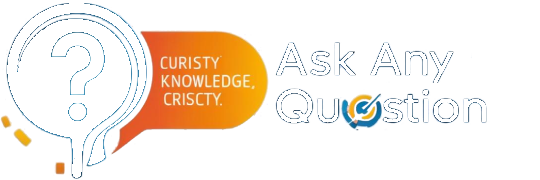Experience can feel like a barrier when you’re just starting out, but I’m here to show you how to transform your resume into a powerful statement without it. In this guide, I’ll share strategies to help you highlight your skills, showcase your potential, and captivate employers even if your work history is limited. You’ll learn how to turn what might seem like weaknesses into your greatest strengths by focusing on what truly matters to hiring managers and how your unique qualities can make you a standout candidate.

Crafting a Compelling Personal Brand
Your personal brand acts as the unique fingerprint you leave on potential employers. I focus on conveying a consistent message that reflects not just what I can do, but who I am—my values, goals, and distinct attributes. This goes beyond listing skills; it’s about storytelling through your resume and online presence, showing authenticity and your potential to grow. Delivering a strong brand helps you stand out even if you lack formal experience, demonstrating a clear, memorable identity that resonates with recruiters.
Identifying Your Unique Value Proposition
I zero in on what sets you apart—whether it’s a combination of academic achievements, volunteer experiences, or interpersonal strengths. Pinpointing your unique value involves reflecting on problems you’ve solved or insights you’ve gained that align with the roles you want. For example, if you led a study group or organized community events, those are tangible demonstrations of leadership and initiative that add weight to your application.
Leveraging Soft Skills to Your Advantage
Soft skills like communication, adaptability, and teamwork often weigh as heavily as technical know-how, especially in entry-level roles. I highlight how your ability to collaborate effectively or manage time under pressure contributes directly to workplace success. Soft skills tell a story of reliability and potential that numbers alone can’t convey, making them powerful tools to differentiate yourself.
Diving deeper, soft skills translate to measurable outcomes in professional settings. For instance, strong communication can reduce misunderstandings that cost companies money or delay projects, while adaptability often means quicker learning curves and smoother transitions during organizational changes. In my experience, employers increasingly prioritize these traits; a LinkedIn survey found that 92% of talent professionals say soft skills are equally or more important than hard skills. Showcasing real examples, such as leading a team project or resolving a conflict, can vividly demonstrate these abilities on your resume, making your profile vivid and impactful despite limited formal experience.

Transforming Education and Projects into Experience
When professional experience is limited, education and personal projects become your most valuable assets. By identifying transferable skills within coursework, independent projects, and academic assignments, you can frame these activities as concrete examples of your capabilities. For instance, a student who led a team project developing a mobile app can highlight leadership, problem-solving, and technical skills applicable to many job roles. Tailoring descriptions to emphasize outcomes—like improved processes or high grades—adds weight and demonstrates practical application beyond the classroom.
Highlighting Relevant Coursework and Academic Achievements
Listing courses directly related to the job shows targeted knowledge, especially if paired with strong academic outcomes like honors or dean’s list recognition. For example, including advanced statistics or business analytics classes signals job-specific expertise. Beyond mere course titles, referencing applicable class projects or research papers gives evidence of real-world application. I often recommend quantifying your academic achievements—such as scoring in the top 10% of the class—to provide concrete validation of your competencies and dedication.
Showcasing Volunteer Work and Extracurricular Activities
Volunteer work and extracurriculars can reveal leadership, teamwork, and commitment, which employers highly value. Describing your role in organizing community events, managing club budgets, or mentoring peers shows initiative and responsibility. For example, serving as the treasurer of a nonprofit club involves budgeting and reporting skills transferable to many industries. Highlighting measurable impacts, like increasing membership by 30% or raising funds, demonstrates tangible contributions and professionalism.
Digging deeper into volunteer and extracurricular involvement, think about the skills you honed: communication when coordinating teams, adaptability handling unforeseen challenges, or project management through event planning. These experiences often require strategic thinking and collaboration under pressure, mirroring workplace environments. For instance, leading a volunteer group to deliver meals during a crisis showcases your ability to handle logistics and maintain morale in demanding contexts. By framing these roles with clear responsibilities and outcomes, you position yourself as a proactive candidate with practical skills ready to transfer to employment settings.
Mastering the Art of Tailored Resumes
Tailoring your resume for each job application significantly increases your chances of landing an interview. By aligning your resume content with the specific job posting, you show employers that you understand their needs and can meet them effectively. Highlight skills and experiences that resonate directly with the role while trimming unrelated details. This customized approach demonstrates focus and attention to detail, qualities that stand out even if your professional background is limited.
Understanding Keywords and Job Descriptions
Carefully analyzing the job description reveals important keywords and phrases that the hiring manager is seeking. These terms often relate to required skills, responsibilities, and company values. Incorporating these keywords naturally into your resume not only appeals to applicant tracking systems (ATS) but also assures human readers that you possess what they need. For example, if the description emphasizes “project management” and “communication skills,” weaving these into your bullet points strengthens your candidacy.
Techniques for Customizing Each Application
Focusing on the specific job, I adjust my resume to reflect the language and priorities expressed in the posting. This includes tweaking the summary, highlighting relevant coursework or projects, and emphasizing skills mentioned repeatedly. Using a template as a base, I swap in targeted achievements or roles that align perfectly with the desired qualifications. This strategy transforms a basic resume into a persuasive narrative about why I fit the job.
Diving deeper into customization, I meticulously cross-reference each section of my resume with the job listing. When a position requires leadership, I spotlight group projects where I took initiative. If teamwork is emphasized, I detail collaborative efforts with quantifiable outcomes. Also, formatting matters—I prioritize the most relevant information by placing it prominently, often near the top. This systematic tweaking isn’t about fabricating experience but reframing what you have so it meets the employer’s expectations, demonstrating adaptability and dedication well beyond what generic resumes convey.
Crafting Impactful Accomplishments without Traditional Experience
Highlighting accomplishments without a conventional job background demands creativity and precision. I focus on achievements from academic projects, volunteer work, or leadership roles in clubs, presenting them as proof of skills like problem-solving and teamwork. Instead of generic duties, I describe specific results — such as increasing club membership by 30% or organizing events that drew over 100 attendees. These concrete examples create a compelling case for your potential, showing employers you bring valuable assets to the table despite lacking formal employment history.
Quantifying Achievements from Non-Professional Roles
Numbers grab attention and lend credibility to your resume. I quantify contributions by citing exact figures: hours volunteered, improvement percentages, or audience sizes. For example, “Led a fundraising campaign that raised $1,200 in three weeks” clearly illustrates impact beyond vague statements. Using measurable data transforms everyday efforts like tutoring classmates or managing social media for a student organization into tangible accomplishments that hiring managers can easily appreciate.
Presenting a Narrative that Resonates with Employers
Connecting your story to the employer’s needs turns abstract qualities into relevant assets. I weave a narrative showcasing your passion for the field, adaptability, and eagerness to learn. Drawing from personal experiences, such as overcoming challenges during remote study or coordinating community outreach, paints a picture of resilience and initiative. These stories help interviewers envision you as a motivated candidate whose background aligns with their company culture and goals.
Diving deeper, developing a narrative means aligning your unique experiences with the values and expectations of the industry. For instance, if applying to a customer service role, describing your experience resolving conflicts during volunteer events or leading team collaborations illustrates interpersonal skills vividly. I advise articulating not only what you did but how those actions reflect qualities the employer seeks. Storytelling makes your resume memorable, bridging gaps left by the absence of traditional experience and emphasizing your readiness to contribute meaningfully.

Utilizing Non-Traditional Networking Strategies
Networking rarely means just attending large events or sending generic applications. I’ve found that adopting non-traditional approaches like connecting through niche communities or participating in virtual meetups can open doors where traditional routes might feel blocked. These strategies allow you to resonate more personally with contacts, helping your name stick out. Engaging in genuine conversations and offering value to others often leads to organic opportunities and insider insights, giving you a significant advantage over applicants relying solely on standard job boards.
Building Relationships through Informational Interviews
Informational interviews give you a chance to learn directly from professionals in your field while subtly highlighting your curiosity and commitment. I advise preparing targeted questions that demonstrate your knowledge and eagerness to grow, which often prompts interviewees to share valuable advice or suggest job leads. These conversations rarely result in immediate job offers but can establish long-term relationships that trigger referrals, mentorships, or invitations to exclusive opportunities, all of which can be game-changers early in your career.
Engaging with Industry Professionals on Social Media
Interacting with professionals on platforms like LinkedIn or Twitter transforms passive observation into active engagement. By commenting thoughtfully on posts, sharing relevant content, and participating in industry-specific discussions, you raise your profile and subtly market your enthusiasm and knowledge. This approach helps you build a digital presence that attracts recruiters, collaborators, and mentors, creating a network that extends far beyond your immediate circle.
Drilling down, social media is more than just a platform for updates; it’s a dynamic toolkit for relationship-building. For example, LinkedIn’s algorithm favors users who frequently engage through comments or shares, often boosting your visibility when you provide insightful perspectives. Posting about recent developments or challenges you’ve tackled—even in academic projects—can highlight your proactive attitude. Case studies show profiles with active engagement receive up to 5 times more connection requests, demonstrating that consistent interaction directly increases your chance to network effectively. Additionally, following key industry hashtags and joining relevant groups allows you to connect with thought leaders and hiring managers, many of whom scout talent actively through these channels.
Final Words
Taking this into account, I understand that writing a resume with no experience can feel daunting, but you can make your application shine by highlighting your skills, education, and any relevant volunteer work or projects. I encourage you to focus on what you can offer and present it clearly and confidently. Your enthusiasm and willingness to learn are assets that employers appreciate. By tailoring your resume thoughtfully, you stand a better chance of catching their attention and opening doors to new opportunities.





Leave a comment